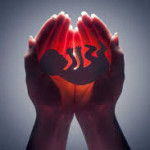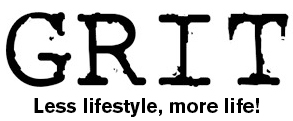This month we asked you to share your views on major global issues that you feel passionate about. We hope you enjoy our contributor’s thought-provoking articles ranging from tackling global poverty and human trafficking to the troubling rise of female foeticide and importance of caring for the environment for future generations.
Next month we want to know if you think it’s still a man’s world? Has your gender hindered or helped your career? Do you believe women today have as many opportunities as men or that they still take on the burden of childcare and struggle to ‘have it all’? Do you feel less like a woman and more like a man in today’s world? Please send us your views on ‘Is it still a man’s world?’ (400-700 words) to grit@womenempowered.co.uk before 20th April 2016.
We look forward to hearing from you.
Sunita Behl, Editor.

It’s a girl! (The three deadliest words in the world)
Imagine a world without females? A recent Indo-Canadian study, in The Lancet, claimed 10 million female foetuses were lost to abortion in India alone over the past two decades1. The findings, apart from indicating cruel social imbalances, are morally troubling.
Female foeticide is the selective abortion of the female child, done deliberately after the detection of the child’s gender through medical tests. This is often done under familial pressure from the husband, in-laws or even the woman’s own parents. Sadly, the majority of female foeticide cases may involve the enthusiastic participation of women, both young and old.
Why abort female foetuses?
The cause of female foeticide lies within cultural norms as well as the socio-economic policies of the country where the practice prevails. The most prolific cases are in South Asian countries including China, India, Vietnam, and Korea. However, this social evil has even appeared in the US and Canada where immigration has brought cultural preferences for female foeticide across the pond.
Surprisingly, the reasons for killing female foetuses aren’t as diverse as one may expect.
- “Male children are a better investment.” The main reason is the idea that the male offspring will better support the family.
- “Female children are a gamble.” In India, the age-old dowry system puts a damper on the spirits of those who are blessed with a girl.
- Women don’t have status in society. As a result of institutional and cultural sexism, female children and adults have less power, status, rights and money.
- Foul medical ethics. With the legalisation of abortion in India, illegal sex determination and termination of pregnancies have become an everyday reality.
- Industrial growth. Industrialisation of the health sector has further established the practice of sex selective abortion. With the advent of CVS, amniocentesis, and ultrasound, sex determination of the foetus has become much easier.
Ultrasound technology is cheaper and easily accessible to the lower economic strata of society. Unfortunately, the accuracy of the ultrasound is not 100% until the foetus is twenty weeks old. Consequently, the children aborted by their enthusiastic parents may just be the little prince they were hoping for.
The Long-term consequences
The after-effects of female foeticide are far-reaching. Blinded by their desire for male children, the majority of parents are ignorant of the disaster they unwittingly invite by indulging in this practice.
- Skewed sex ratio: In India, the number of girls is declining with each passing decade. From 962 and 945 girls for every 1000 boys in the years 1981 and 1991 respectively and the ratio plummeted to a low of 914 girls born for 1000 boys in 2011. In China, the ratio is even more alarming – 848 girls for 1000 boys!2
- Female/Women trafficking: The steep decline in the number of girls makes them a scarce commodity for the number of males eligible for marriage.
- Increase in rape and assault: Once women become an endangered species, the instances of rape, assault, and violence become widespread.
- Population decline: With no mothers to bear children (male or female), there will be fewer births, leading to a decline in population. Although population control is currently the goal of many nations like China and India, a total wipe-out of one sex is not the way to achieve this.
Prevention and Solution
Thankfully as female foeticide has come to the attention of the global community many international and national law making bodies have come forward to stop this cruel practice and significant steps have been taken including:
- Cancellation/permanent termination of a doctor’s license who aborts a foetus simply because of its gender.
- Heavy penalties imposed on companies like GE that specialise in marketing medical equipment used for illegal sex determination and abortion in unlicensed clinics and hospitals.
- High fines and judicial action against parents who knowingly try to kill their unborn baby.
- Widespread campaigns and seminars for young adults and potential parents to enlighten them about the ill effects of female feticide.
Ignorance is one of the major causes for selective sex abortion cases. Spreading awareness can go a long way in saving our future sisters, mothers, girlfriends and wives.
References
1. Jha P et all. Lancet.2006;367(9506):211-8.
2. Reshma. International Journal of Applied Research 2015; 1(6): 98-100

You may find it shocking to know that the international human trafficking industry is estimated to be worth around $32bn annually. Statistics also show that nearly 93% of those used in sex trafficking are female and 53% are under the age of 17. The number of Britons identified as victims of human trafficking increased more than 5% during 2014.1
Human trafficking is nothing new but as technology has improved this age old industry is now getting more sophisticated. When the Euro zone opened its borders to Eastern European countries many people, especially young women, were promised domestic work in countries such as Germany, Italy, France and the UK. However on arrival they were forced into prostitution to clear traffickers’ debts. Trapped in a foreign country with no money or contacts these young girls became modern day slaves, living in fear, whilst making their traffickers rich. More recently the influx of refugees into Europe over the last year has further compounded the problem as desperate people find any way they can to escape war.
However, we should not only concentrate on the final stages on trafficking. To really understand the route cause, we need to look at the factors that drive people into these desperate situations; global inequality, corporate greed and war all combine to create modern day slaves.
The European community has just agreed on a plan to resettle refugees in Turkey and throughout Europe. When an analyst expert was asked on the news if this would lead to an end to people smugglers in Turkey, he explained how it would actually make the smugglers richer. Desperate refugees would now seek new and more dangerous routes to reach countries like Germany and the UK. And the more dangerous the routes, the more money traffickers would demand.
However human trafficking of refugees is only half the problem. The same smugglers use the profits earnt from desperate refugees to fund many other illegal operations. Smugglers were already familiar with routes into Europe long before the refugee crisis because these are the exact same routes that are also used to smuggle drugs and sex slaves. The current refugee crisis has simply allowed them to expand their operations to further increase their profits.
The international community has to do more to combat trafficking by targeting smugglers, closing down routes and arresting those involved. To reach a positive outcome this has to be an international effort as it requires all parties to be fully involved. We also need to place greater emphasis on dealing with the source. Where are people being trafficked from? What causes them to leave their country behind? Only greater education, job prosperity and global equality can help us fight trafficking and modern day slavery.
Reference
1. Global Report on Trafficking in Persons 2014, United Nations

Spring is here and the Guardian reports that “our planet went through a dramatic change last month. Climate experts revealed that February was the warmest month in recorded history, surpassing the previous global monthly record – set in December. An unprecedented heating of our world is now under way.” I worry for our children’s future.
No matter how hard I try to change my own world, I know that ultimately I alone have no power to stop the chaos ensuing. We all hear about governments not doing enough and corporate culprits, but when the UN declares animal agriculture as contributing to 18% of greenhouse gases it surprises me. Why does this not cause as much debate as it ought to?1
The recent G20 convention discussed climate change but steered well clear of the elephant in the room – animal agriculture. 18% of greenhouse gases accounts for more than all forms of transportation – including cars, trucks, and airplanes – combined. A 2009 article in World Watch concluded that the actual figure was a staggering 51%!2 But why is this not on anyone’s mind? Why is this not being debated on the G20 platform? My own opinion is that those of us in the West who demand intensively farmed animals do not care enough. Feasting is more important to us than climate change and our gluttony is simply leading us to our own slaughterhouse.
More than 70 billion land animals are raised for human consumption3.It’s difficult to imagine how this number is even possible. But the truth is that we are now consuming more animal produce than ever before.
Five years ago I watched a documentary that would change my perception of what was going on around me. It was literally like the lens on my glasses had their prescription changed. The documentary was called Earthlings. This began my research into the notion that animals, humans and nature are all equal as earthlings. The most poignant question that the documentary asked was what makes us humans a more superior species to other animals? As earthlings we should be able to coexist in harmony instead of try to profit off exploiting the weakness of other animals. That exploitation is now causing our own destruction; destroying us and our planet.
My answer has been to move towards a plant-based diet. Not only has my health improved as a result (which was a bonus) but my conscience has been liberated and my consciousness has evolved. I’m now 41 years old and my only regret is that I chose to become vegan so late in life. If we are serious about attending to what nearly all environmentalists agree is a growing crisis, moving towards a plant-based diet is an essential step.
More information visit http://www.cowspiracy.com. This showcases a more recent documentary called ‘Cowspiracy: The Sustainability Secret’ which explores the impact of animal agriculture on the environment, and investigates the policies of environmental organisations on this issue. Another documentary worth watching is ‘Unity’, which is the sequel to Earthlings.
References:
1. http://www.humanesociety.org/assets/pdfs/farm/hsus-the-impact-of-animal-agriculture-on-global-warming-and-climate-change.pdf
2.http:// www.independent.co.uk/environment/climate-change/cow-emissions-more-damaging-to-planet-than-co2-from-cars-427843.html
3. http://awfw.org/ factory-farms

Laos is one of the poorest countries in the world. The average monthly income is about $50, which is hardly enough to survive. Poverty strikes the defenseless who are mostly children. In rural regions, children are considered to be their parents’ only old age insurance. Consequently the average Lao woman has six to seven children however tragically one out 12 children die before their fifth birthday.1,2
A major reason for the high rate of infant and maternal mortality is infection and poor hygiene. Only two thirds of the population will have access to public water systems and only a fifth of deliveries take place in a hospital. Most of the population have no access to state healthcare and there is only one, often poorly educated, doctor available to care for every 5000 inhabitants. As a result children in Laos still die from tetanus, although vaccination is easy and generally accessible. In addition the opening of borders and limited information and education, have increased the problem of sexually transmitted diseases such as HIV.
Through my medical background I became involved with the Swiss Laos Hospital Project. Our aim is to contribute to the reduction of maternal and child mortality by improving medical care in Laos. We believe every pregnant woman should have the right to a clean delivery and since 2000 a number of Swiss physicians, midwives, nurses and other medical staff have spent one to four weeks of their holidays on a regular basis in Laos. We cooperate with our Lao colleagues, organise professional training and supply local hospitals with much needed necessary medical equipment. For example, a delivery kit which includes a disinfectant solution for the newborn’s navel has now been successfully produced in Laos and is used all over the country.
Apart from reducing mortality we also aim to support the Lao economy. We support the construction of neonatal wards, a service very few hospitals are able to offer. We initially set up a neonatology ward in the Mother and Child Hospital in Vientiane and since 2004 this has been successfully managed and now offers basic good care for newborns and premature babies.
Further neonatal wards have now also been established in Phonsavan, Sam Nuea, Luang Prabang, Sayabouli, Savannaketh, Pakse, Luang Nam Tha and Vientiane Province by embracing new buildings, installing infrastructure and vital equipment and providing training and teaching for the hospital staff. It is our hope to spread neonatology wards and good neonatal practice throughout Laos.
Since 2006 a team of general practitioners from Zurich has been supporting the district hospital in Muang Kahm through regular volunteer activities. They focus on professional training of the medical staff across all fields of general medicine through conferences and bedside teaching. At present a team travels to Muang Kham every three months for two to three weeks. Due to our long-term commitment we continuously see improvements in the quality of medical care and in 2014 we began a second project with Nong Het District Hospital which still continues today.
Working for the Swiss Laos Hospital Project is an affair of the heart. Every time I return I am impressed by the people and their country. There is so much poverty but, despite the adverse conditions the Lao people are helpful and generous. Although our main aim is to improve the healthcare system in the long term, we always keep the individual in mind and every single baby counts. Sometimes we are fortunate to help save a life which is incredibly rewarding. However also deal with tragedy of loss of life which is exhausting and frustrating, but makes us work even harder. This for me is Laos. So I keep coming back in the hope of making a little difference. If you are a physician, healthcare professional or have an interest in offering your time and services please get in touch. New volunteers are always warmly welcomed. In addition any donations, big or small, to help the poor at the other end of the world create life would be greatly appreciated.
For further information please view our homepage www.swisslaos.ch or contact sj.arri@gmx.ch for further information. If you would like to make a donation please use the following account: Swiss Laos Hospital Project, Credit Suisse, 8070 Zürich, Iban: ch57 0483 5086 0287 1100 0, bic/swift: creschzz80a, pc 80-500-4.
References:
1. Lao PDR WHO fact sheet, http://www.who.int/countries/lao/en/
2. Lao PDR Asia development bank fact sheet, http://www.adb.org/publications/lao-pdr-fact-sheet

There’s nothing worse than feeling unsupported, especially by another woman who should be able to understand and relate to you. How many times have you come across a woman who judges, passes uncalled for opinions, makes you feel bad for living a life different to hers or blames you when you have been mistreated by a man? Sadly often completely overlooking the fact that she is a woman herself!
This is a global issue. In the midst of world news filled with honour killing, acid attacks, rape, forced marriages, sexism and unequal pay, only women can instinctively understand each other. So what can we do, here and now – you and me?
We can all start by acknowledging and appreciating our own experiences, difficulties and successes whilst at the same time recognising them in other women. Everyone is here to live their own life path and they are entitled to make their own decisions (even if this doesn’t fit in with your way of thinking!) You are not in their shoes, and they are not in yours, so before judging others we should all take a moment to pause. If you always come from a place of openness and humility you can help filter out those initial judgmental thoughts that pop up.
Of course this starts by accepting yourself first. Allow yourself, as a woman, to make your own decisions and learn to feel OK with them. Whether you choose to live with a partner without marriage, decide to be single, have a non-conventional career or dress differently give yourself the freedom to live the way you want.
Learn to be there for yourself and become your own best friend who understands and hears you. It’s OK to say no to things that are expected of you when you feel like it’s too much. Wouldn’t a simple thing like taking a nap because you’re tired instead of being expected to cook be so freeing?
By listening to your true feelings and taking the action that feels right to you does not make you wrong or a bad person. It may feel uncomfortable, because it means going against the norm, but that is how change occurs and that is also the beginning of learning to respect yourself.
This world would be a better place if women felt safe, confident and full of self-respect – where they’re not being judged, they’re not having fingers pointed at them and where they have the self-esteem to live life confidently. Girls who have good self-esteem are less likely to go for the wrong type of guy or endure bullying from people such as their partners, in-laws and relatives. If all women employed this practice they would not feel alone in their troubles, they would know that every woman around them is there for them, that they have a place to go to where they can feel supported.
This concept brought on the formation of Peanut Hour – a monthly women’s meet up which was started in January 2016 in collaboration with other women. It’s where women can come to a confidential, non-judgmental space and share, laugh or just sit and talk about whatever is on their mind, and be supported. It also means making a conscious effort to be open minded and is a social initiative open to all women.
By developing and spreading this concept we can contribute to educating younger and older women about being supportive, so that there are no women who feel they have nowhere to turn to or that they have no one to understand them.
Peanut Hour – Last Saturday of every month visit www.facebook.com/peanuthour/ http://peanuthour.eventbrite.com Contact Sukhi Bhogal for Holistic Solutions for Life – one-to-one sessions and workshops available. For more information visit www.sukhisolutions.com

Last week I experienced exactly what the not-for-profit sector should be about – innovative, creative and dynamic; full of energy and ideas; focussed on impact and how to make society a better place for all. However this was not at home – this was in India.
The contrast with the UK voluntary sector could not have been greater. In both countries questions are being asked about the sector and the role of not-for-profit organisations. In the UK the overwhelming response tends to be disbelief that anyone could question the sector and too many organisations that think they can live off the history of having strong brands.
However what I saw in India was exactly the opposite; individuals and organisations just getting on with it through actions not words. I witnessed a dynamism and energy that is often sadly lacking in the UK sector.
This was my first visit to India for seven years. I love the country and have had the great privilege of having visited on many occasions over the last 20 years through my involvement in development work. How things have changed in those seven years – in India overall but in the not-for-profit sector even more so. Mumbai is a city transformed – and so is the NGO sector. It was a genuine breath of fresh air to spend a week with so many people full of energy and ideas, but with an approach that is modern and dynamic and not about old-fashioned charity.
The organisations I saw were much more entrepreneurial; more about social enterprise than helping people in a patronising way. They were absolutely focussed on changing things and making society better but in a faster-moving way with much less bureaucracy. They embraced creative approaches to financing; seeking investment and openly expressing preference for payment by results. One organisation actually said they would refuse grant funding because it didn’t inspire the right focus and behaviours. They also embraced enterprise and the role of the private sector. And not once did anyone complain about the sector being questioned or challenged – in fact it was the opposite, one group of people told me that if the sector is being challenged that you just have to be even better at what you do.
This was the perfect time for me to go to India as the British Asian Trust shapes its strategy for the future. It was exciting and informative and will help to ensure that our strategy is relevant and appropriate. A strategy that embraces private enterprise as well as NGOs and the government. A strategy that embraces creative finance mechanisms, such as social investment and bonds, as well as traditional grant-funding. And above all a strategy that will be led from the region.
I had expected to learn a lot, to meet great people and organisations and to love being back in this great country once again. What I had not expected was to see a not-for-profit sector that was so dynamic, so entrepreneurial and so full of innovation and creativity.
It was everything that the UK not-for-profit sector needs to be.
The British Asian Trust was founded in 2007 by HRH The Prince of Wales, who wanted to do something about the widespread poverty and hardship that he saw in South Asia. He turned to the entrepreneurial spirit of the British Asian diaspora, bringing together visionary philanthropists and supporting grassroots initiatives that enable people to help themselves. The Trust empowers disadvantaged people to transform their lives. For more information www.britishasiantrust.org
Do you want to write for GRIT?
Each article needs to be submitted to grit@womenempowered.co.uk on the 20th of the preceding month (eg an article for June should be submitted by 20th May). The newsletter will go out on the 5th of each month to our subscribers and will be uploaded on our website and our social media will direct to it.
All submissions should be between 400-700 words. They can be written in the first person where appropriate. They will be edited for content to ensure suitability. Please ensure they are verified with source if it contains factual content. If the topic is personal then please ensure that you have been mindful of others where appropriate and ensure your account is as accurate as possible. Articles submitted will be chosen at the discretion of the editor. Please also be sure to include a photo and your name as you would like to be credited (title / position etc if applicable)
2016 GRIT Topics
MAY – Is it still a man’s world?
Women today are excelling across multiple fields. Do you feel your gender has hindered or helped your career? Do you believe women now have as many opportunities as men or that women still take on the burden of childcare and struggle to ‘have it all’? Do you feel less like a woman and more like a man in today’s world? Please send us your views.
JUNE – We should talk more about …
This month we want to hear about any issue that you feel we do not discuss enough but should discuss more. This is your opportunity to have your say and raise awareness of any subject big or small.
JULY – Inspiring Role Models – The Real Heroes
In a world filled with superficial celebrity culture, who are the real heroes or heroines that you look up to? What traits do they possess and what have they achieved that makes them stand out? Whether your role model is someone you know personally or in the public eye please share why they inspire you.
AUGUST – Making time for me
Many of us think of August to enjoy the summer and look forward to the holidays. Tell us your views on how you feel about the importance of ‘me-time’? Do you think it is important to take timeout for yourself every day? Or is the thought of ‘me-time’ selfish or unrealistic?
SEPTEMBER – Health and Body talk
Do you think there is a link between body image and self-esteem? Do you feel there is too much pressure on women to stay young or be thin? What do you think of photo-shopped female images used throughout the media? If you have a view on any body image or health-related issue from cosmetic surgery and the size zero debate to the impact of fad dieting or social media we want to hear from you.
OCTOBER – Is a woman’s role changing?
Do you think a woman’s role has changed? How different is your life to previous generations? Do you think you have more opportunities than ever before or that there is more pressure to succeed? Is it really possible for a woman to manage ambitions alongside a happy family life? How has a woman role changed in society and the wider world? Please share your views.
NOVEMBER – Back to business
Have you started your own business? Do you have views on the benefits of working for yourself or would you recommend that you should stick to the security of a corporate career? Does the thought of being your own boss feel you with excitement or fear? Please share your experience, advice and business tips for others who may be thinking of taking the big step.
DECEMBER – Looking forward to 2017
What are your big hopes and plans for 2017? What will you change or how will you make a difference? Please share your proud moments, memories and achievements of the past year and your hopes for the New Year.
WE needs YOU!
Thank you.
Disclaimer: Women Empowered is a wholly social initiative run by volunteers which aims to empower women to make the best of their individual skills and talents and help them to achieve whatever personal and professional goals they may have. We work at a grass roots level, trying to ensure we are easily accessible to all who would like to reach us.
GRIT is a place for the Women Empowered community to share their life experiences. Articles in GRIT represent the views of their authors and do not represent the views of Women Empowered.
To the extent permissible by law, Women Empowered assumes no responsibility for information published in GRIT and disclaims all liability in respect of such information.
Women Empowered is not liable for any injury and/or damage to persons or property as a result of any actual or alleged libellous statements, infringements of intellectual property or privacy rights, whether resulting from negligence or otherwise.
Women Empowered does not warrant that the information published in GRIT is accurate or free from error. Information published in GRIT is intended solely for the purpose of providing general information and/or opinion.
You agree to accept the application of English law to govern matters between Women Empowered and yourself

